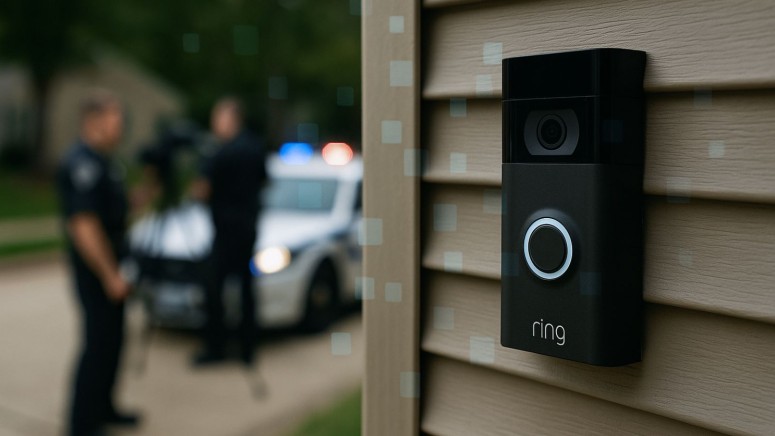
Ring to Partner with Flock to Expand Law Enforcement Video Access, Reignites Privacy Concerns
- New partnership: Law enforcement agencies using Flock's platform will be able to request video footage from Ring camera owners.
- Voluntary participation: The system allows police to specify a time and location for an incident and request relevant footage with user approval.
- Privacy implications: The collaboration raises ongoing debates about home security privacy and the expansion of surveillance networks.
Ring, the Amazon-owned home security company, announced it will integrate with surveillance technology firm Flock Safety, streamlining the process for law enforcement to request video footage from millions of Ring camera owners, but Ring owners must voluntarily agree to share their videos.
How the Partnership Functions
This Ring and Flock partnership allows police departments using Flock's platform to send targeted requests for footage related to investigations. Under the new arrangement, law enforcement officials using FlockOS and Flock Nova products can define a specific time and location of an incident and issue a request for video evidence.
Ring device owners in the designated area will then receive a notification and can choose whether to share their footage. This process is voluntary and requires user consent for each request.
The collaboration aims to provide investigators with a broader pool of potential evidence by leveraging Ring's extensive network of consumer-owned security cameras. This increased law enforcement video access is intended to accelerate investigative work.
Flock Nova uses license plate recognition camera footage and data from brokers and open source intelligence.
The move signals a renewed effort by Ring to facilitate collaboration between its users and law enforcement, a practice it previously scaled back in 2024.
Surveillance and Privacy Concerns
The partnership has reignited concerns among privacy advocates. Flock Safety has faced criticism for its automated license plate reader (ALPR) technology, which aggregates data into a national database accessible by law enforcement.
Critics argue that the expansion of Flock Safety surveillance through integration with Ring's consumer devices creates a powerful, widespread monitoring network with minimal oversight.
This development follows Ring's founder returning to the company with a stated goal of increasing police assistance, even as the company previously settled with the FTC over allegations of improper data access.
Earlier this year, U.S. license plate readers leaked live streams and vehicle data due to misconfiguration. In August, Security researchers discovered that hackers could access onboard cameras and steal data of smart bus travellers due to Wi-Fi security gaps.










